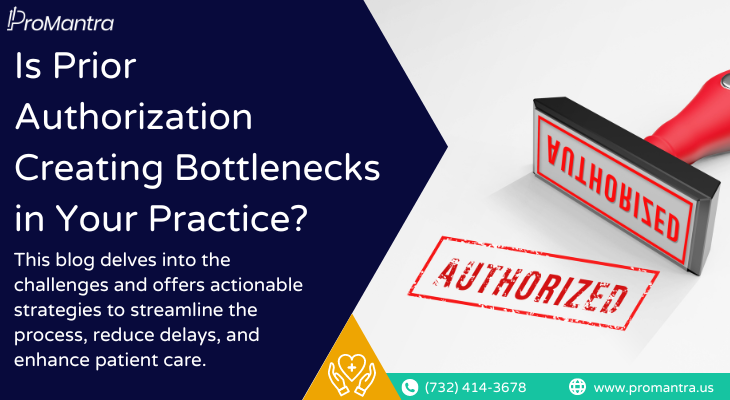The administrative burden of prior authorization is a growing concern for healthcare providers, patients, and policymakers alike. Prior authorization, a process requiring healthcare providers to obtain approval from a patient’s insurance company before administering certain treatments or medications, is intended to control costs and ensure appropriate care. However, this process often leads to significant administrative challenges, causing delays in patient care, increased workloads for healthcare staff, and frustration for all parties involved. In this blog, we will explore the administrative burden of prior authorization, its impact on healthcare practices, and strategies to alleviate this burden while maintaining high standards of patient care.
The Scope of the Administrative Burden of Prior Authorization
- Time-Consuming Process
One of the most significant aspects of the administrative burden of prior authorization is the time it consumes. Healthcare providers often spend hours on the phone or filling out forms to secure approval for necessary treatments. According to the American Medical Association, physicians & their staff spend an average of two business days every week on prior authorization-related tasks. This time could otherwise be spent on direct patient care, leading to inefficiencies in healthcare delivery and potential delays in treatment.
- Increased Workload for Healthcare Staff
The administrative burden of prior authorization extends beyond physicians to include nurses, medical assistants, and administrative staff. These professionals are often tasked with gathering the necessary documentation, completing complex forms, and following up with insurance companies. This increased workload can lead to burnout, job dissatisfaction, and high staff turnover rates, further straining the healthcare system.
- Delays in Patient Care
The most concerning consequence of the administrative burden of prior authorization is the delay in patient care. When approvals are slow, patients may have to wait for essential treatments or medications, leading to worsening health conditions and, in some cases, avoidable complications. The AMA reports that 92% of physicians say prior authorization delays have a negative effect on their patients’ clinical outcomes. These delays undermine the very purpose of prior authorization, which is to ensure timely and appropriate care.
Impact on Healthcare Practices
- Financial Strain
The administrative burden of prior authorization can also have a financial impact on healthcare practices. The time and resources spent on securing prior authorizations can be costly, especially for smaller practices with limited staff. Additionally, delays in authorization can result in postponed or canceled procedures, leading to lost revenue. For many practices, the costs associated with prior authorization are becoming unsustainable.
- Negative Effects on Patient-Provider Relationships
The administrative challenges posed by prior authorization can degrade the relationship between patients & providers. Patients often do not understand the complexities of prior authorization and may become frustrated when their care is delayed. This frustration can be directed at the healthcare provider, damaging trust and patient satisfaction. Providers, in turn, may feel pressured to navigate an increasingly complex and bureaucratic system, further exacerbating the stress associated with their profession.
- Compliance and Legal Risks
Navigating the prior authorization process requires strict adherence to regulations and documentation requirements. Failure to comply with such requirements can result in denied claims, legal risks, and potential penalties. The administrative burden of prior authorization thus includes the challenge of ensuring that all paperwork is accurate, complete, & submitted in a timely manner. This adds another layer of complexity and stress for healthcare providers.
Strategies to Alleviate the Administrative Burden of Prior Authorization
- Streamlining the Prior Authorization Process
One of the most effective ways to decrease the administrative burden of prior authorization is to streamline the process. This can be achieved through the use of electronic prior authorization (ePA) systems, which allow providers to submit and track authorization requests electronically. ePA systems can reduce the time and effort required to complete prior authorization, resulting in faster approvals and fewer delays in patient care. Additionally, standardizing the prior authorization process across different insurance companies can help reduce confusion and inconsistencies, further easing the administrative burden.
- Advocating for Policy Changes
Healthcare organizations and providers can advocate for policy changes that address the administrative burden of prior authorization. This includes supporting legislation that limits the number of services requiring prior authorization, increases transparency in the authorization process, and establishes clear timelines for approval decisions. The American Hospital Association (AHA) and other organizations have been vocal in pushing for such changes, recognizing the need to balance cost control with the need for timely patient care. Policymakers must consider the real-world impact of prior authorization on healthcare providers and patients when crafting regulations.
- Outsourcing Prior Authorization Services
For some healthcare practices, outsourcing prior authorization services to third-party providers can be an efficient way to reduce the administrative burden. These providers specialize in handling the complexities of prior authorization, allowing healthcare staff to focus on patient care. Outsourcing can also lead to improved accuracy and faster turnaround times, as these providers are often well-versed in the requirements of various insurance companies. However, it is essential to choose a reliable and experienced partner to avoid potential pitfalls associated with outsourcing.
- Enhancing Communication and Collaboration
Improving communication & collaboration between healthcare providers, patients, and insurance companies can also help alleviate the administrative burden of prior authorization. Clear & timely communication ensures that all parties are on the same page and can work together to resolve any issues that arise during the authorization process. This can include providing patients with clear explanations of the prior authorization process, setting realistic expectations, and involving them in discussions about their treatment options.
- Investing in Staff Training and Support
Providing ongoing training and support for healthcare staff involved in the prior authorization process is crucial for reducing the administrative burden. This includes training on the use of ePA systems, understanding the requirements of different insurance companies, and developing strategies for managing the workflow associated with prior authorization. By investing in staff development, healthcare practices can improve efficiency, reduce errors, and enhance job satisfaction among their employees.
Conclusion
The administrative burden of prior authorization is a significant challenge for healthcare providers, impacting their ability to deliver timely & effective care to patients. The time-consuming nature of the process, coupled with the increased workload and potential for delays in patient care, makes addressing this burden a top priority for the healthcare industry. By implementing strategies such as streamlining the prior authorization process, advocating for policy changes, outsourcing services, enhancing communication, and investing in staff training, healthcare practices can alleviate the administrative burden and focus on what matters most: providing quality care to their patients.
How ProMantra Can Help
ProMantra is committed to helping healthcare providers navigate the complexities of prior authorization by offering comprehensive support and solutions tailored to their needs. With years of experience in healthcare revenue cycle management, we understand the challenges that come with the administrative burden of prior authorization. Our team of experts works closely with providers to streamline the prior authorization process, reduce delays, & ensure compliance with all regulatory requirements.
By partnering with us, healthcare providers can offload the administrative tasks associated with prior authorization, allowing their staff to focus on delivering patient care. Our services include electronic prior authorization submissions, real-time tracking, and proactive communication with insurance companies, ensuring that authorizations are handled efficiently and accurately. With ProMantra’s support, healthcare practices can overcome the challenges of prior authorization and improve both operational efficiency and patient satisfaction. Contact Us Today!




